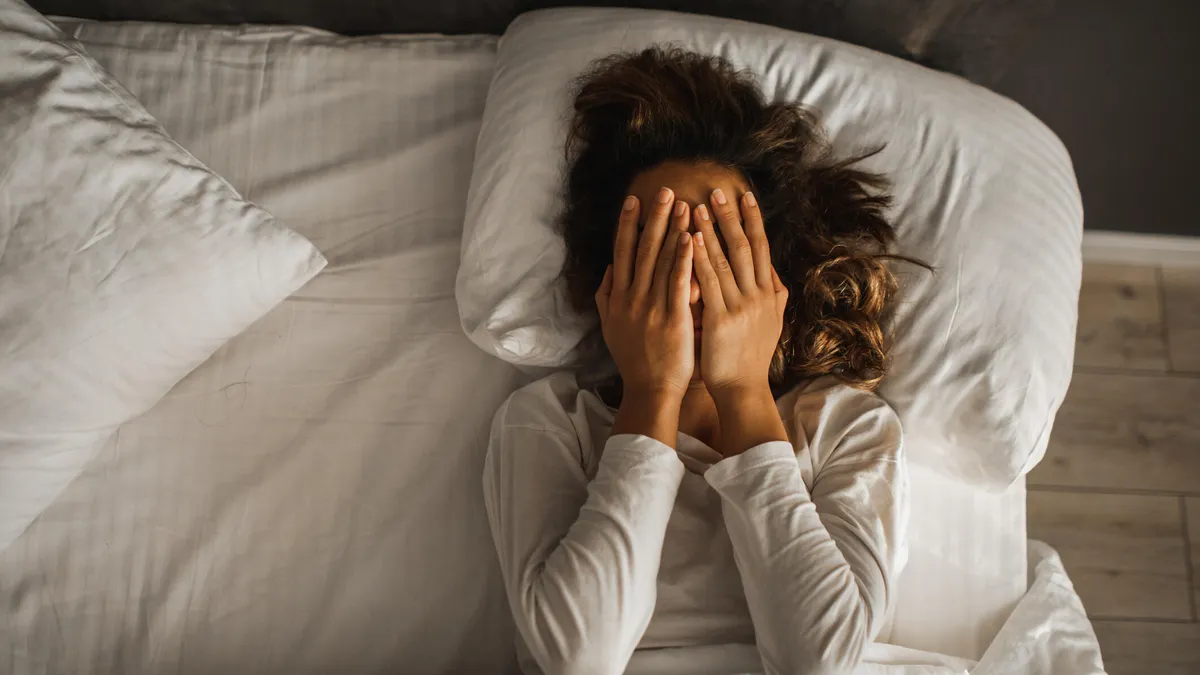Sleepless in the City: Coping with Urban Insomnia

Introduction:
There’s a special difficulty for people trying to get some sleep in the middle of the cacophony and lights of a city that never stops. The increasing prevalence of urban insomnia in highly populated metropolitan regions poses unique challenges to attaining peaceful sleep. Urban people struggle with a multitude of stimuli that disturb the delicate balance of their sleep-wake cycle, from the cacophony of street noise to the unrelenting glow of city lights. This piece delves into the intricacies of urban insomnia, examining its origins, outcomes, and practical methods for managing the restless evenings that afflict city inhabitants.
Understanding Urban Insomnia:
The term “urban insomnia” describes sleep disorders that people who live in crowded urban regions encounter. These disruptions are caused by environmental variables such noise, light and air pollution, and social stressors. The hectic pace of city living and the continual stimulation of the senses make it difficult to get a good night’s sleep. The difficulties of urban insomnia are further compounded by the fact that urban areas are 24/7, making sleep interruptions possible day or night.
Environmental Factors’ Effects:
Urban insomnia is mostly caused by the ubiquitous existence of environmental variables that interfere with sleep. Even the most soundproofed homes can be compromised by noise pollution from traffic, building, and other urban activity, which interferes with the beginning and maintenance of sleep. The body’s natural circadian rhythms can be disrupted by light pollution, which is produced by streetlights, billboards, and lit signage. This can cause wakefulness when it is time to go to sleep.
Furthermore, respiratory disorders like asthma and allergies can be made worse by air pollution, which comes from industrial activities, automobile emissions, and other sources. This can further impair the quality of sleep. It can be challenging to de-stress and unwind before bedtime due to social stresses like financial concerns, social responsibilities, and work-related constraints. These stressors can also raise arousal and anxiety levels.
The effects of urban insomnia go far beyond sleep disruptions; they also have an impact on one’s general quality of life, physical and mental health, and overall well-being. A number of detrimental health effects, such as an elevated risk of obesity, diabetes, heart disease, and immune system dysfunction, are linked to long-term sleep deprivation. Furthermore, sleep disturbances put people’s health and wellbeing at even greater risk by exacerbating pre-existing medical conditions including anxiety, depression, and hypertension.
Urban insomnia has a substantial negative impact on mental health in addition to physical health, exacerbating symptoms of anxiety, depression, and mood disorders. Constant stress from insomnia can affect memory, cognitive function, and decision-making skills, which can affect daily functioning and reduce productivity. In addition, the psychological consequences of urban sleeplessness can strain bonds with others, weaken social ties, and prolong feelings of isolation and loneliness.
Coping Techniques for Urban Sleeplessness:
Despite the difficulties caused by urban insomnia, people can use coping mechanisms and tactics to lessen its effects and get back to getting a good night’s sleep. To reduce the effects of noise and light pollution, it is crucial to create a sleep-friendly atmosphere. This can be achieved by purchasing earplugs, white noise machines, and blackout curtains. A regular bedtime routine, along with relaxation methods like progressive muscle relaxation, deep breathing exercises, or mindfulness meditation, can assist in informing the body that it is almost time to go to sleep.
It’s also important to limit screen time before bed since blue light from computers, tablets, and cellphones can disrupt the body’s natural production of melatonin, a hormone that controls sleep-wake cycles. Furthermore, maintaining a pleasant room temperature, exercising frequently, and abstaining from coffee and alcohol before bed can all assist maximize sleep quality and encourage peaceful evenings.
In addition, getting help from medical professionals or mental health specialists can be a great way to manage urban insomnia and treat underlying medical issues or psychological issues that may be causing sleep disruptions. Insomnia can be effectively treated with cognitive-behavioral therapy (CBT-I), which targets the underlying beliefs and actions that cause sleep problems. CBT-I helps patients break bad thought patterns and adopt better sleeping habits.
Conclusion:
Urban residents who can’t sleep deal with a difficult mix of social pressures, light pollution, and noise that throws off their sleep-wake cycle. However, there is hope for relaxation and rejuvenation even in the middle of city life’s bustle. People can recover peaceful sleep and enhance their general health and well-being by comprehending the causes and effects of urban insomnia, putting helpful coping mechanisms into practice, and asking for help from family and medical specialists.
May each night among the city’s busy streets and avenues hold the promise of peace and rejuvenation, and may each day offer the chance for vigor and fortitude. Many people who are trying to manage their urban insomnia may find comfort in the calm hours of the night and strength in their capacity to face the difficulties of insomnia.





